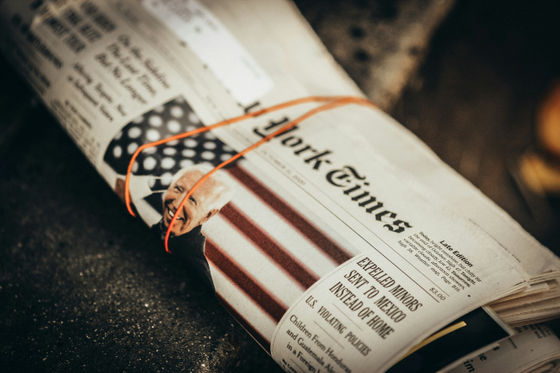The New York Times counters that ``We didn't hack ChatGPT, ChatGPT bypassed the paywall''

The New York Times, an American daily newspaper,
NYT to OpenAI: No hacking here, just ChatGPT bypassing paywalls | Ars Technica
https://arstechnica.com/tech-policy/2024/03/nyt-disputes-openai-hacking-claim-by-pointing-to-chatgpt-bypassing-paywalls/
A number of news outlets and authors have sued OpenAI, including the New York Times, over ChatGPT being trained on and often outputting portions of copyrighted content. .
In response to the New York Times, which harshly criticized AI for threatening journalism, OpenAI said, ``The materials submitted by the New York Times as evidence of plagiarism by ChatGPT are intentionally created to cause problems such as backward flow of training data and hallucinations . They asked the court to dismiss the lawsuit.
In the OpenAI vs. New York Times trial, OpenAI claims that ``The New York Times hacked ChatGPT to extract its own articles'' - GIGAZINE

In a new document filed in court (PDF file) , the New York Times defended the appropriateness of the way it allowed ChatGPT to output its articles, stating that ChatGPT users are using the following methods to bypass restrictions on access to paid articles: You pointed out that you are letting ChatGPT generate the entire article.
To see if ChatGPT was copying articles, the New York Times 'took learnings from GPT-4 by using the first few words or sentences of the article as prompts,' court documents state. It is listed.
In addition, OpenAI tried to claim that ``ChatGPT users do not use it to generate text from paid articles,'' but the New York Times said ``ChatGPT is not used to bypass paywalls. 'It has been widely reported,' he said.

According to the New York Times, previous copyright infringement by ChatGPT was only done by displaying copied articles during training. However, when a plugin called 'Browse By Bing' was introduced to ChatGPT in May 2023, ChatGPT was able to acquire more content than was included in the training dataset of the basic model, and The New York Times claims that it has begun to infringe on copyright by displaying article content as search results in response to user search queries.
OpenAI temporarily disabled 'Browse By Bing' in July 2023, as this new feature allowed ChatGPT users to read paid articles without paying.
'We found that the beta version of Browse could sometimes display content in undesirable ways. For example, when a user points to a URL and requests that content, the user may accidentally request 'We're temporarily disabling Browse until this issue is fixed.'
On Reddit, a bulletin board social news site, a ChatGPT user wrote, ``It looks like you can use ChatGPT to bypass the paywall.''
Perhaps most inconvenient for OpenAI, in April 2023, just before OpenAI introduced “Browse By Bing,” the New York Times notified OpenAI that ChatGPT was infringing on copyright. Ars Technica, an IT news site, points out that they are in contact with each other.
This is because a lawsuit regarding Napster , a file-sharing service for the purpose of sharing music, states that ``a computer system operator knowingly knew of the existence of copyright-infringing material available on that system and deleted it from the system. If the operator did not, the operator was directly aware of the infringement and was directly complicit in the infringement, according to court precedent.
The New York Times cited this case law and said, 'We have informed OpenAI that ChatGPT is producing output that infringes on our articles.'
OpenAI has nearly won another copyright infringement case brought by three authors, and is hoping to use this as a springboard to gain an advantage in subsequent cases. OpenAI claims that the New York Times lawsuit 'contains the same content as the authors' claims that were dismissed in February 2024.' It is of the view that they are substantially different.
OpenAI almost completely wins in the first half of the copyright infringement lawsuit against ChatGPT, and most of the claims of the three authors are dismissed - GIGAZINE

OpenAI also claimed in January 2024 that its use of the article was fair use, saying it was 'impossible to build useful AI models without copyrighted content,' and Ars Technica said, 'If the New York Times wins this case, OpenAI may be forced to remove ChatGPT and start everything over.'
Related Posts:





